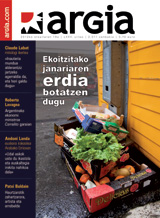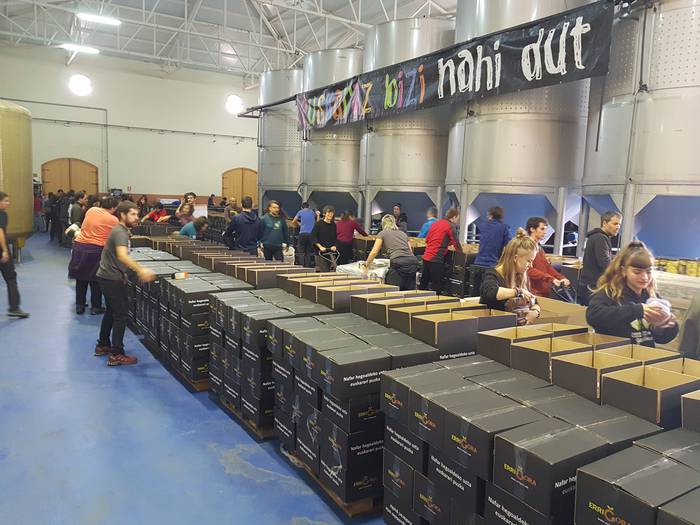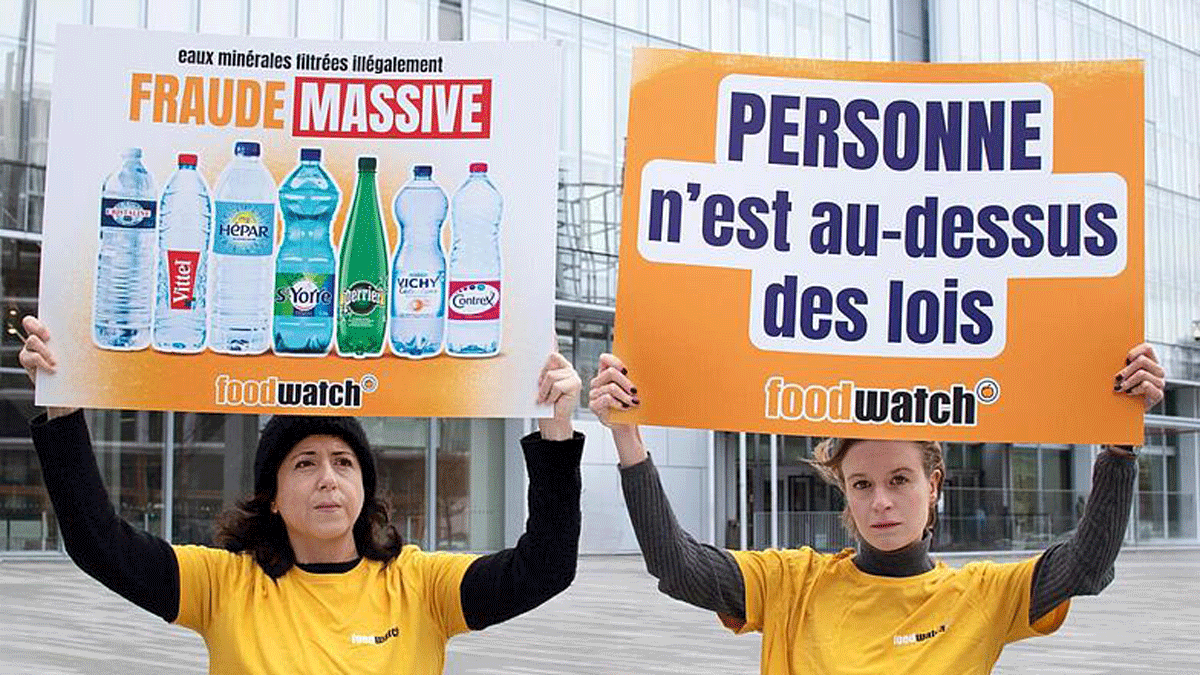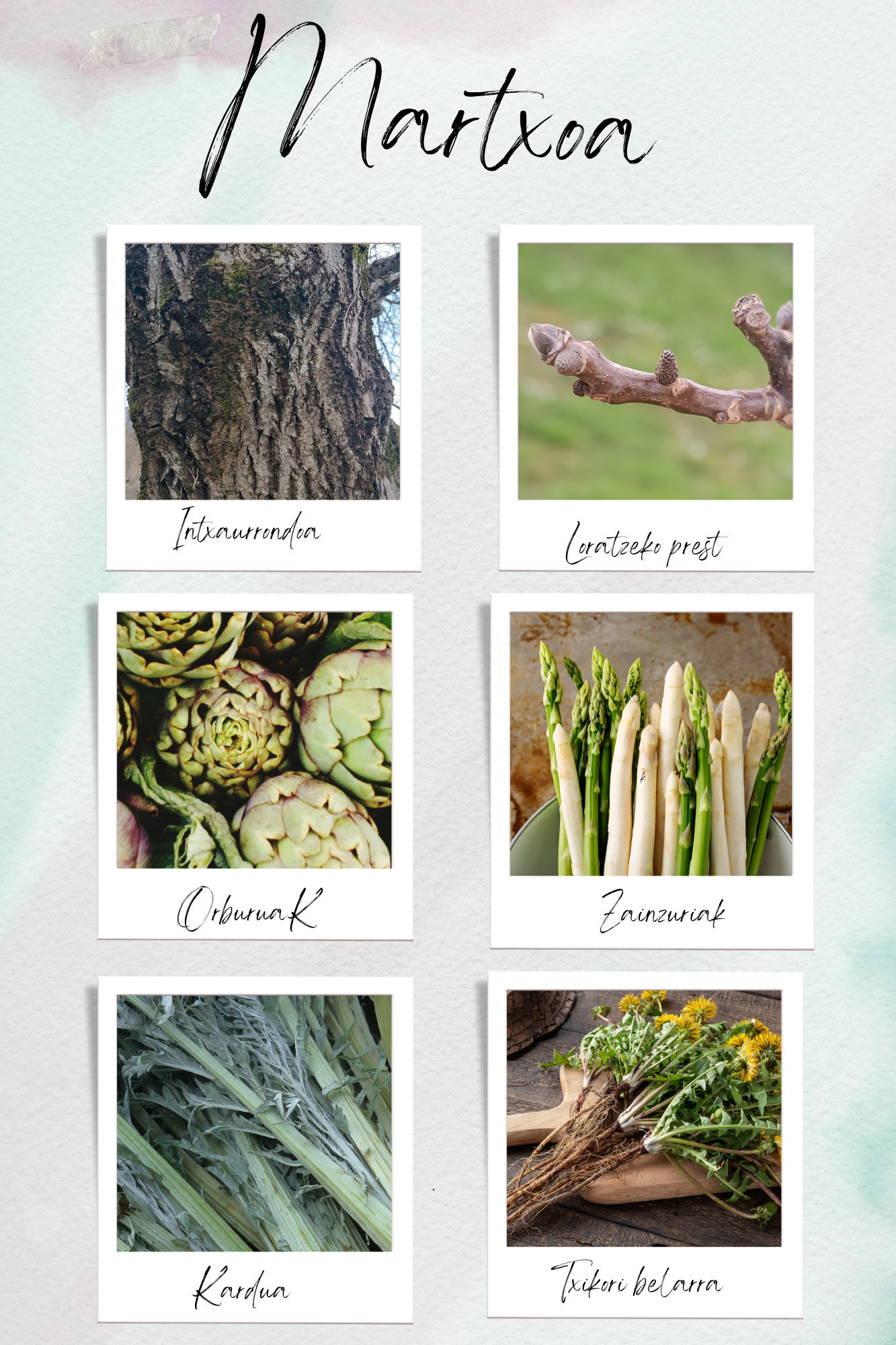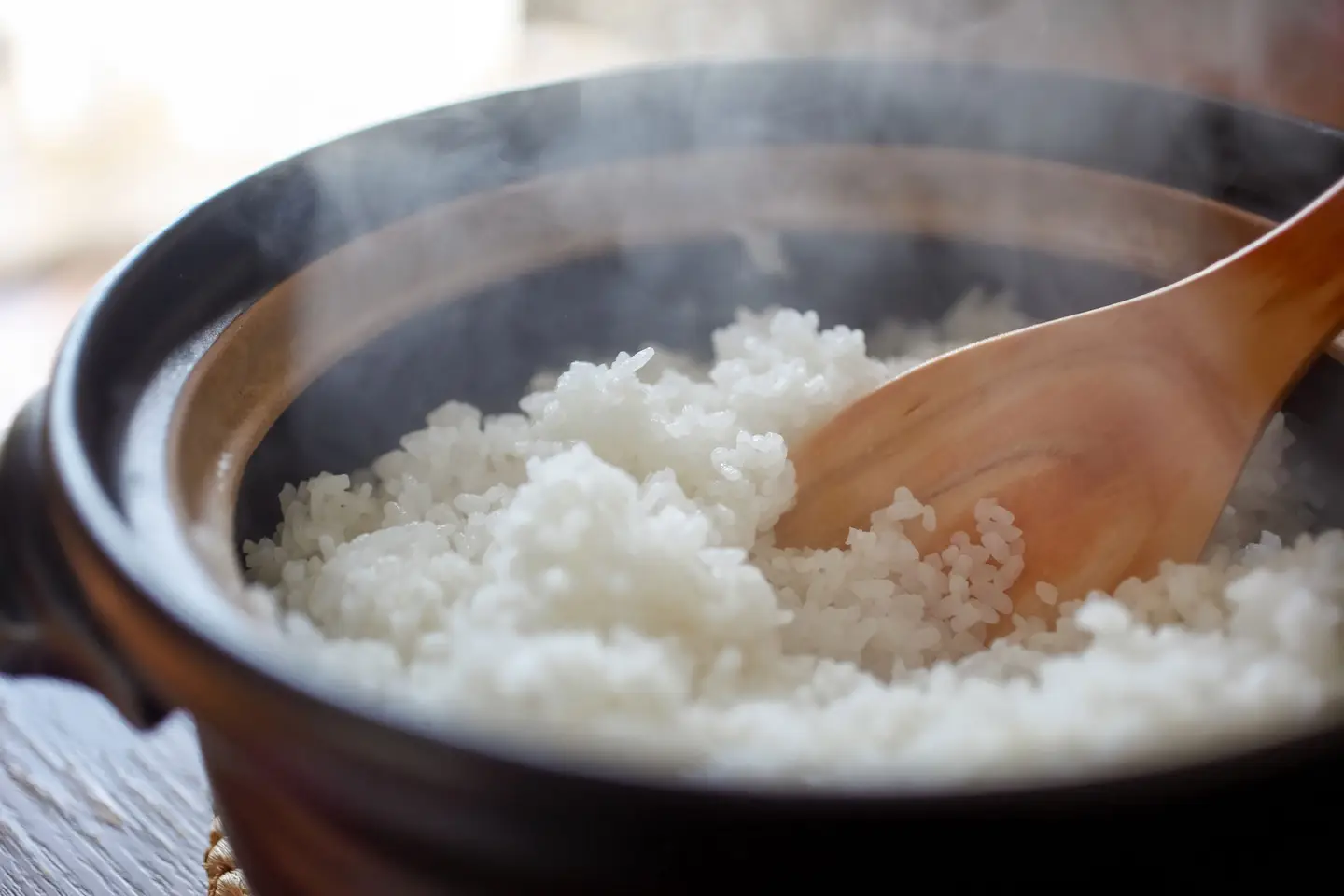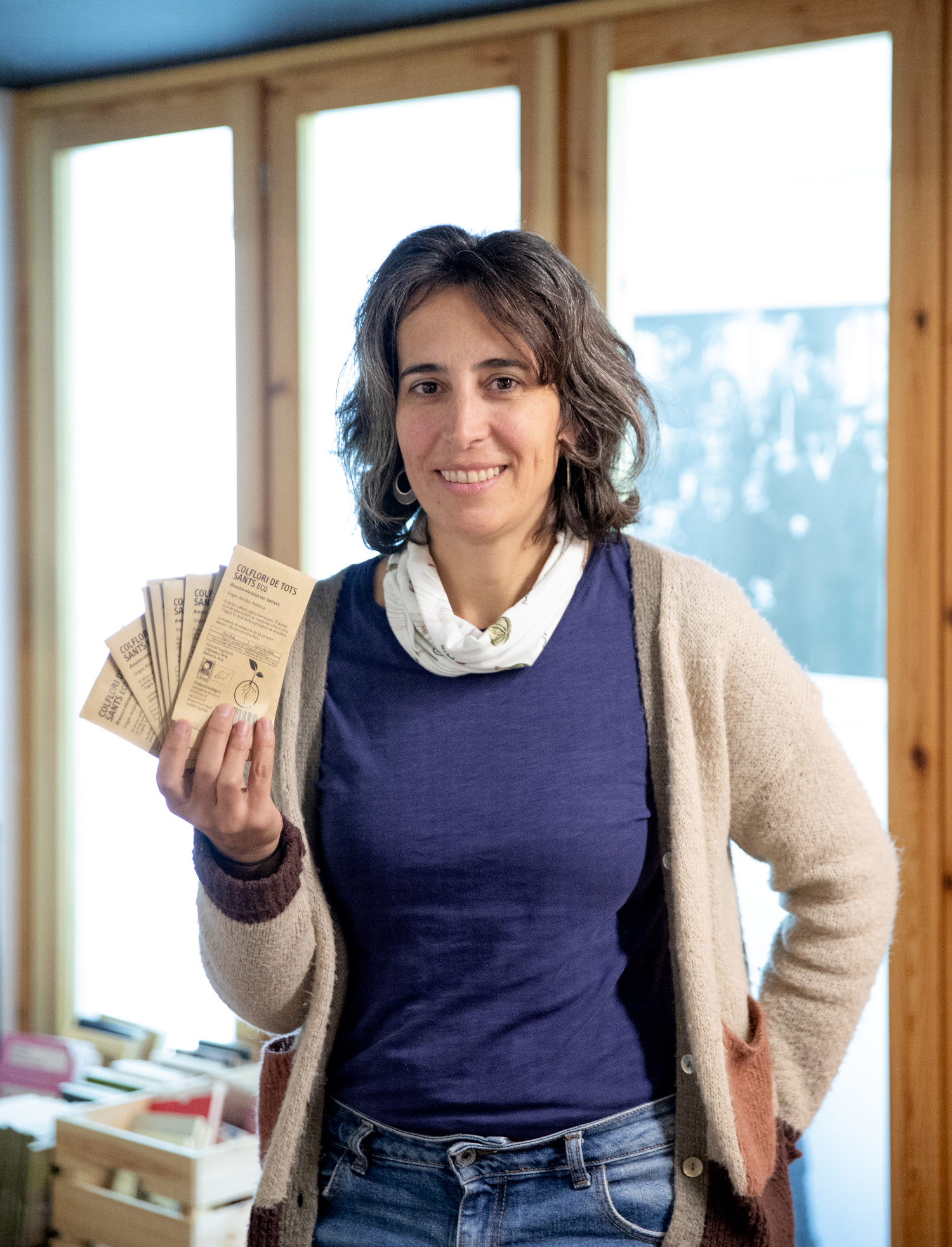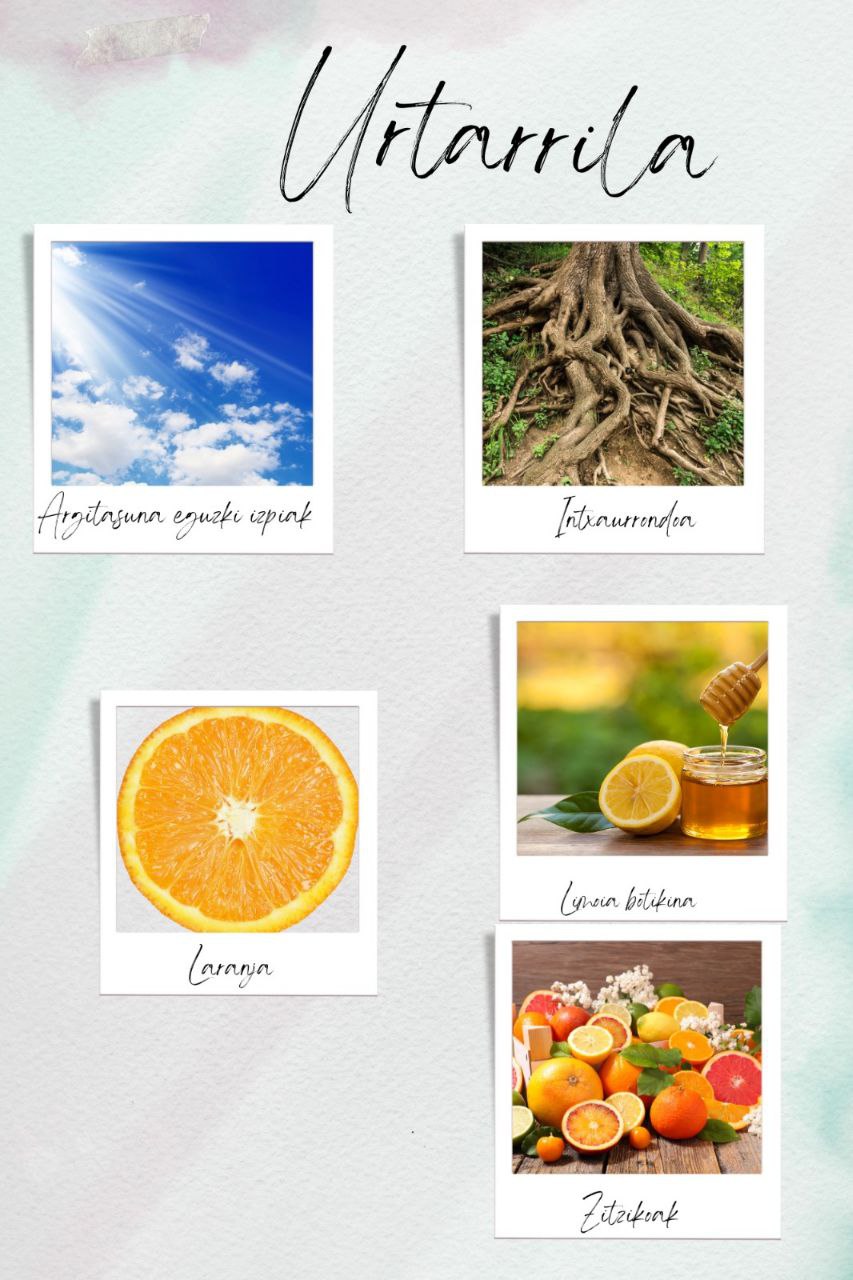Terrible figures we can avoid
- In Europe and the United States, we buy twice as much as we eat, or what is the same, we throw half of what we consume away. However, these scandalous numbers can be avoided: by tightening legislation, by taking measures to extend the duration of food, by demanding transparency in the activity of suppliers and shops… and by setting aside the bad habits of consumers.
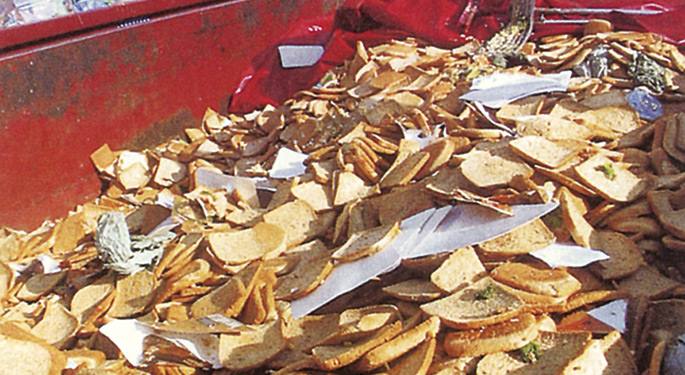
There are no potatoes with holes in supermarkets, there are no “ugly” fruits and vegetables, but large and colorful apples, round tomatoes of the same size, green and green lettuce. Fruit and vegetable crops that do not look “perfect” are lost in tons, rejected by the shops. Legislation itself does not help much: According to EU standards, for example, apples with a diameter of 50 millimetres or a weight of 70 grams cannot be sold, nor kiwi with less than 62 grams. Because bakers, too straight, too small, are too large, each year between 20% and 40% of bananas collected in Latin America and Africa (about 20 million tonnes) are deposited. Because of its smaller size than that established by the European Union or because it is a non-interested species, European fishermen despair between 40% and 60% of the fish caught. Marks & Spencer forces workers to throw four slices of bread from each mold (the two initials and the two finals) in the trash to avoid the edges. In the Anglo-Saxon countries, the habit of periodically emptying the refrigerator of the house and throwing everything there is to “clean it” has spread. There are many examples of this kind, and therefore, there is a lot of food left to rot, even if it is healthy and sweet.
Proof of this, and before we reach the core, we leave some data to know the dimension of the problem. As was mentioned in the introduction, almost half of what we consume in Europe goes to waste, and if you take into account the food that is used to feed the animals that we eat, the containers go two-thirds. Tristram Stuart, Waste Uncover the Global Food Scandal (Waste. In the book Emerging the Global Food Scandal, he clarifies that the loss occurs at all stages of the sector (food production, transport, shops and homes). According to various studies, the European manufacturing and processing industry spills a third of what is produced, and from all that is caught we only eat a little more than half (eel, paneca, ground peel, liba, water dog… they are thrown in tons after fishing “accidentally”, because they are not sold). A large European trade launches every year between 500 and 600 tonnes of food and 24-35% of the food served in schools ends up in waste. Consumers also dismiss a lot of food at home, even if they are not aware: the European citizen believes they throw around 4%, but it is actually almost 20%.
The European Union has recently addressed the issue, based on data from the report requested last year: In the EU every year 90 million tonnes of food is thrown out of waste, which means that every citizen disregards 179 kilos a year of edible and healthy products (half a kilo a day). The EU has already declared 2013 as the Year Against Food Waste, a year later in Europe.
Although we would feed a billion hungry people with the surpluses of the First World, the ultimate goal is not to give surpluses to those who need it, but not to generate surpluses. Food overproduction and huge farms cause great damage to the environment – in addition to squandering Earth’s limited resources – and excessive demand increases the price of raw materials, further reducing the purchasing power of those in the Third World. Food is also wasted there, between 30% and 40% of production, but not because of the great demand, but because of the lack of adequate infrastructure to keep food in inadequate conditions.
Supermarket and dining funds
Food is wasted in small and large shops. First of all, the relationship with suppliers has an effect: the quantity of products ordered must be well calculated, but being able to return to the supplier what has not been sold in the supermarket on several occasions makes it easier to stop. At the end there are so-called “over-production waste”, when more of them have been sold, for example, because trade has planned and brought a great demand to the supplier, but then, by ratifying the specific request, it has agreed on a lower amount. In addition, surpluses are caused by the need for variety and the most recent one: “We have to have everything on the shelves, people want to see, try… and that means having more products than they should,” explains the worker of a supermarket Eroski who does not want to give his name. “We also add many products to expire, a stack of yoghurts, five days before their expiration; fish, fruits, vegetables… they also go in the trash, when they start to stumble by their appearance.” Shops and restaurants find it cheap to throw away food, as they get the products at a low cost from their suppliers, and once they have sold a certain quantity, they have the guaranteed profitability. In any event, the Eroski staff has stressed that measures are already being taken to prevent the economic crisis: “For a while it has been a barbarity what has been thrown in the supermarket, I was ashamed to throw it away, but things are gradually changing, they bring out new formulas, cheaper products that are about to expire, for example, at a price of two yoghurt, a day before the meat is extinct 30% cheaper… and there are people who take advantage of it, who wait in times of crisis to buy the product.”
The catering company Auzo Lagun, for its part, tells us that in order to minimize the quantity of surpluses, they calculate well the number of raw materials to buy and they keep well the unused products to take advantage of in the menus of the coming days. In Hego Euskal Herria, Auzo Lagunak distributes 117,000 daily menus (9,000 kilos), distributed in 775 centers, mainly schools, hospitals, nursing homes and factories, according to the Department of Health. The latter are the ones that generate the most waste, as the menus offer more than one option; in the residences of hospitals and the elderly a detailed forecast is made the same day and in the schools there is only one menu. The criteria of the school menu are determined by the Basque Government, following the recommendations of nutritionists: “Each dish has to have a certain amount depending on the age and we are obliged to distribute it,” says Amaia Agirre, of the catering company of the Quality department.
Agirre has made it clear that they can retain and exploit raw materials, but not what is left of them after their production: “The law says that the food we cook has to be at least 65ºC at all times, but it is almost impossible to keep the food at 65ºC all the time, at some point the temperature drops and the law says that you have to throw it, even if it leaves the kitchen, although it is kept at 65ºC. In addition, if we manage not to lower than 65, we have to make sure that in two hours it reaches 8°C, for the cooling process to be quick, it cannot be put in the refrigerator and enough, besides introducing a 65°C meal into the refrigerator increases the general temperature and affects the other products, so it is very difficult to meet all these conditions”. That is, when there are surpluses in the finished products, they go directly into the trash, because the health laws say that they are not edible and therefore cannot be taken home, distributed or offered. “It has once happened to us that some client has wanted to take advantage of the leftover: the remains they wanted to bring to the nursing home in a school, keep them in a nursery and distribute them among the parents… but we do not recommend it, because we make sure we keep and handle the food in certain conditions, but outside… Considering that a little surplus is generated, our advice is to throw away what is generated.”
Confusing expiry labels
One of the major causes of waste is confusion with the expiry date of the products. When reading the food label, we must distinguish between “consume before the date indicated in the lid” – that is, “consume before”, “À consommer de préference avant le”, which we usually read in Spanish or French – and “Caducity”. The label often bears only a first note and this date does not indicate the expiry date, but the manufacturer has considered that from that date the product may not maintain all of its initial characteristics. This is explained to us by Iosune Cantalejo, professor in the Department of Food Technology of the Public University of Navarra: “If you put ‘before you consume…’, it doesn’t mean that from there you can’t consume and that you are at risk for your health, it means that in a sensory way, you may not be in your best condition. That is, with regard to quality, which does not have to maintain odor, taste, consistency, freshness… But even if yogurt has expired, I can eat quiet for a few days, without more; increasingly bitter with the passage of days, because live bacteria are eating yogurt sugar, and breakfast cereals a month will not be as crisp as at first, chocolate will not affect health during the months, but will not affect health. For lack of knowledge, food is often thrown that is very suitable for health.”
Iosune Cantalejo has warned that shellfish is the most responsible, as well as fresh meat and fish, so it is important to keep food well and not break the chain. On the contrary, preserves are very durable: they have been subjected to a previous heat treatment and if the container is well, hermetically closed, without blows, without oxidizing, many preserves can be kept edible for years, do not become innocuous after the expiry date. “It is important to know how to read the product labels and to ensure that the label contains complete and appropriate information. In this way, we only need to follow the recommendations: keep them in dry and cold places, etc. It is important to take into account the amount of opening of the refrigerator and the amount of food we have inside, as the temperature is essential not to spoil the product.”
Entrepreneurs and Food Banks
The essential thing is not to generate surpluses, but once generated, what do you do with that food? The employee of Eroski has recognised that food ends up in the container in his establishment, but that the company is about to pick up meat and fish – the workers are prohibited from taking anything out. Tristram Stuart, who has been feeding on what has been caught from these containers for years, tells in the book mentioned above the experience and surprises the amount of rich foods that can be made by recovering the food that has been discarded. People who come together to go home what supermarkets have thrown up have increased: they're not beggars, they're entrepreneurs, or they're just not willing to let the food rot. They often share what has been achieved among those who need it; a small group of Baiona and Bokale, precisely, feed a fortnight of people with valuable traces taken from the landfills of shops. However, sometimes it is not an easy job: the containers in large supermarkets are usually kept, or the packages are open, broken and mixed with food.
Thanks to the work of the volunteers, the Food Banks of Euskal Herria obtain thousands of kilos of food from the hand of Recondo, Puleva, Frutos del Beti Ona, Conservas Ortiz, Carnicerías San Marcial, Ursabe, Eroski, Carrefour, Alcampo, etc. It is the banks themselves that receive food and, subsequently, non-governmental and similar organizations are responsible for collecting food from the banks and distributing it to those in need. “We go to MercaBilbao every morning and we get the products that the shops are not going to buy them, those that are about to consume; or those that are left over from the special campaign of supermarkets with a particular product; and also those that think it has some defect, that is near the expiration date or that they are excluded for having fallen to the ground…”, explains Nicolás Palacios, president of the Bizkaia Food Bank.
What we can do
In the restaurant, instead of preparing dishes in advance, it is preferable to cook them to the customers’ demand to store unused raw materials; it is also convenient to order the space in advance to fine-tune the calculations; and not be ashamed to bring the surpluses into a tupper. Supermarkets can give “ugly” food a chance, and a good forecast, focusing on more/less consumed products, can greatly reduce food waste. The regulation can be made more acute: for example, by laying down clauses in the relationship between shops and suppliers so that supermarkets cannot return as many products to suppliers as they want and in the last minute they cannot modify the orders they want, as many companies would not worry as much about the forecasts and demands, as in Norway, they can force companies to make public the practices they throw away, trying to give people a clearer picture, to ban landfills.
In this line of tightening up legislation, the European Union has shown its readiness to take action on the basis of that report, which seeks to regulate the process of exploiting agriculture and other products – which should also include a fishing model – which aims to spell out the two expiry dates on the labels and advises shops to lower the price of products that are about to expire or to make special offers to customers. The United Nations goal is to halve food waste by 2025.
We, of course, cannot do little, but are simple actions. Tristram Stuart recommends that we go to the supermarket with the list of products we need; measure the quantities well and make the use, reuse, freezing and recycling of the surpluses (cannells that were born to take advantage of the surpluses, garlic soup, dessert of pain perdu...); and the current model of consumption can change it each, buying directly without intermediaries the producers in the area. They are just a few examples, because at the end of the day the key is to regain responsibility in the past, perhaps we will regain the awareness that we have lost because of the vain economic value that food has today. Otherwise, we will lose the planet.
Gasteizko alde zaharrean dago El 70 taberna-jatetxea, Aiztogile karrikan. 2008an jaio zen, elikaduraren burujabetza eta kontsumo arduratsua oinarri. Soberakinik ez sortzeko sekretua argi du Franco Santonastaso El 70-ko sukaldariak: dena aprobetxatzea. “Landare bat hartzen badugu adibidez, hostotik sustrairaino aprobetxatzea, bai prestatu aurretik, baita ondoren ere; alegia, zerbait erabili gabe geratu bada, beste zerbait egiteko berrerabili. Porruarekin esaterako, zuri koloredun hamar zentimetroak baino ez erabiltzea alferrik galtzea da, erabili hostoak zopa edo menestra egiteko, beste jakiren bat biltzeko… Erremolatxarekin berdin: sustraia baino ez da erabiltzen, baina hostoak ere goxoak daude, egosi, salteatu, beste era batera aurkeztu… Batzuetan aurkezten ditugun platerak arraroak iruditzen zaizkie bezeroei, baina probatu eta ezustekoa hartzen dute, jendeari erakusten diozu dena berrerabili daitekeela, plater originalak kozinatu”. Sormena garrantzitsua da, gainera denboraldiko produktuekin baino ez dutelako lan egiten, ekoizle zuzenek eskaintzeko daukatenarekin, baina osagarri berarekin plater ezberdin ugari egin daitezkeela dio Santonastasok, menu bariatua eskaintzea badagoela.
Lehengaien eskaera egiterakoan ondo planifikatzea ere funtsezkoa da, eta jatetxe txikia izanik, erraza omen da antolatzea. Norbaitek deitzen badu 50 lagunentzako bazkaria egin nahi duela esanez, handitu egiten da eskaria eta kito. “Inguruko jatetxeen zaborrontziak ikusita antzematen da janari asko botatzen dela. Kontua da jatetxe handiek hornitzaile handiekin egiten dutela lan, lehengaien prezioak merkeak dira eta ez dute arduraz begiratzen erositako kantitatea, irabazi marjina handia delako: guk patata kiloa euro bat ordaintzen dugu, besteek 20 xentimo inguru, eta beraz niri patata bat galtzeak min egingo dit, baina jatetxeak bota egingo du erreparorik gabe, behin etekina aterata”, uste du sukaldari italiarrak
“Hondakinik ez platerean!”. Hori zen kontsigna gure txikitako otorduetan. Janariak zeozer sakratu bazukeen, batez ere ogiak; lurrera erori eta, jasotakoan, musua eman behar zitzaion. Harik eta adin zozoan mamia baztertzeko moda etorri zen arte, lodiarazten zuelakoan... [+]
Bizkaigane elkarteak elikadura burujabetzan oinarritutako proiektua du Errigoitin (Bizkaia), 1983tik. Instalazioak dauden lur eremutik aterarazi nahi du lur jabeak elkartea. EHNE Bizkaia sindikatuak adierazi duenez, instalazioek lege eta administrazio eskakizun guztiak betetzen... [+]
Martxoaren 10etik 26ra izango da udaberriko kanpaina. 'Beste modura, denona de onura' lelopean arituko dira gertuko ekoizpena, banaketa eta kontsumoa babestu eta sustatzeko, ager zonaldean euskara hauspotzen duten bitartean. Apirila amaieratik aurrera jasoko dira... [+]
Euskal Herriko bi muturretatik datoz Itziar (Bilbo, 1982) eta Ekaitz (Erriberri, 2002), sortzen ari den Burujabetzaren Aldeko Mugimenduaren berri ematera. Euskal Herrian diren burujabetza prozesu ugariak arloz arlo bultzatu eta indartu nahi ditu BAMek. Lan horretan hasteko,... [+]
Ur kontaminatua ur mineral eta ur natural gisa saltzen aritu dira urte luzeetan Nestlé eta Sources Alma multinazional frantsesak. Legez kanpoko filtrazioak, iturburuko ura txorrotakoarekin nahasi izana... kontsumitzaileen osagarria bigarren mailan jarri eta bere interes... [+]
Emakume bakoitzaren errelatotik abiatuta, lurrari eta elikadurari buruzko jakituria kolektibizatu eta sukaldeko iruditegia irauli nahi ditu Ziminttere proiektuak, mahai baten bueltan, sukaldean bertan eta elikagaiak eskutan darabiltzaten bitartean.
Zuhaitza esnatzear dago, kimuak ageri dira adarretan. Gutxi falta da loraldirako, laster aro berria hasiko du, indarberrituta.









